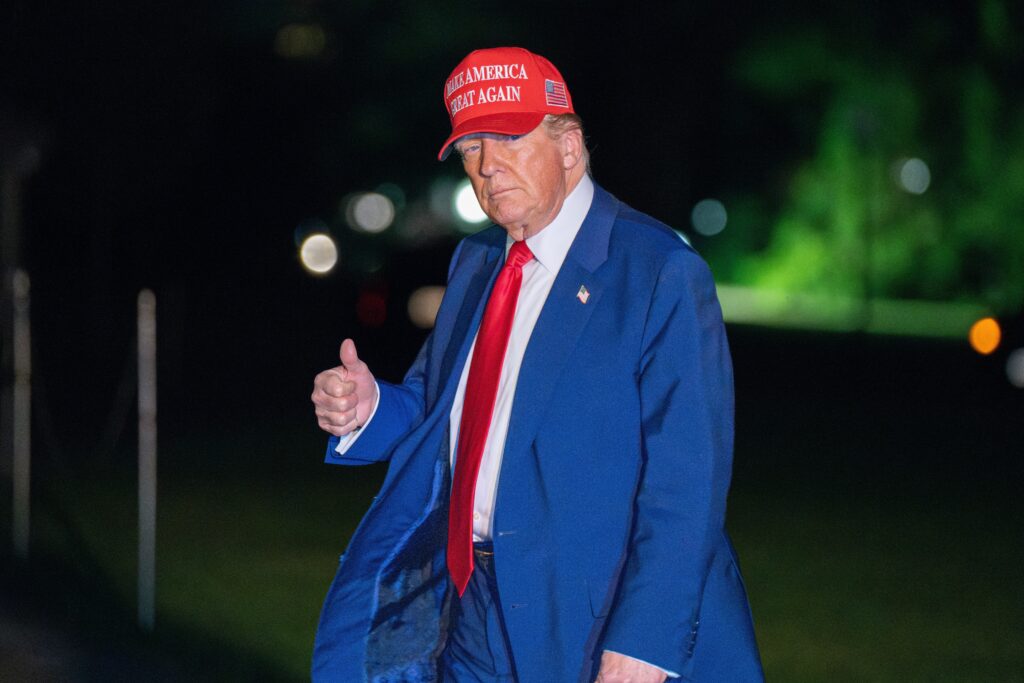Donald Trump renewed his threat to impose a 100% tariff on all films produced outside the United States. He claimed other countries had “stolen” the American film industry. The president said California suffered heavily and the tariff would “solve this long time, never ending problem.” In May, Trump promised to discuss the plan with Hollywood executives and begin imposing the levy, warning that America’s film industry faced a “very fast death.”
Tariff Plans Extend Across Industries
Trump announced a new wave of tariffs last week. Measures include a 100% levy on branded or patented drug imports and 50% tariffs on kitchen and bathroom cabinets. On his Truth Social platform, Trump said, “Our movie making business has been stolen from the United States of America, by other countries, just like stealing candy from a baby. California, with its weak and incompetent governor, has been particularly hard hit!” He added the 100% tariff would apply to “any and all movies that are made outside of the United States.” The president did not provide a timeline for implementation, and the White House has yet to comment.
Streaming Services and Cinema Face Uncertainty
Experts remain unclear if the tariffs would cover streaming platforms such as Netflix or cinema releases. They also question how the levy would be calculated. The Canadian Chamber of Commerce expressed “deep concern” because American studios rely on Canadian facilities, crews, and talent. Catherine Fortin-LeFaivre, senior vice president of international policy and global partnerships, warned tariffs risk punishing US studios, driving up costs, stifling investment, and undermining joint economic advantages. She said the measure could weaken both economies and threaten thousands of middle-class jobs.
Filmmakers Navigate Complex Challenges
Dan Coatsworth, investment analyst at AJ Bell, questioned the practicality of a tariff on films. He noted filmmakers often shoot abroad due to better tax incentives. “The threat of 100% tariffs on movies made outside the US raises more questions than answers,” Coatsworth said. He explained defining an American-made film would be difficult if it included foreign actors, directors, or funding. Trump’s plan could increase production costs, which studios might pass on to audiences, potentially hurting streaming and cinema demand. Investors currently see little risk, with Netflix and Disney stocks dipping briefly before recovering.
Hollywood Productions Shift Abroad
Several major films produced by US studios have been shot outside the country, including Deadpool & Wolverine, Wicked, and Gladiator II. Movie industry research firm ProdPro reported the US remains a key global production hub. Last year, production spending totaled $14.54 billion, a 26% decline since 2022. Countries attracting increased investment include Australia, New Zealand, Canada, and the UK. The UK government awaits details of the US tariff to assess its potential impact on the British film industry. A spokesperson emphasized the UK film sector employs millions and generates billions for the economy.
New Tariffs Target Furniture and Lumber
Separately, Trump announced 10% tariffs on softwood timber and lumber imports, along with 25% levies on kitchen cabinets, vanities, and upholstered wooden furniture. He had hinted at these measures in a Truth Social post, calling for “substantial tariffs on any country that does not make its furniture in the United States. Details to follow!!!” The tariffs take effect on 14 October, with some set to increase sharply next year for countries that fail to reach an agreement. Last week, Trump also imposed a 100% levy on branded or patented drug imports unless companies build factories in the US.


